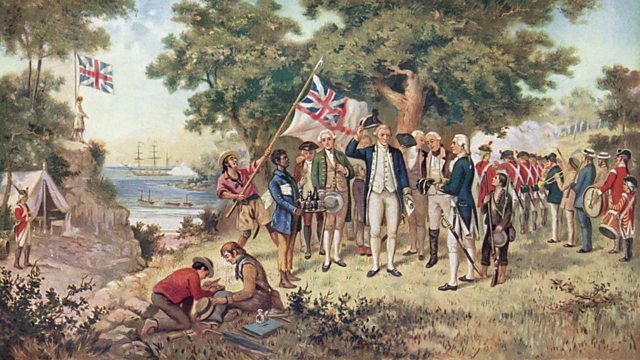Astronomy and Empire
Melvyn Bragg discusses the relationship between astronomy and the British Empire, how astronomical science provided a means for navigation and British naval control.
Melvyn Bragg and guests discuss the relationship between astronomy and the British Empire. The 18th century explorer and astronomer James Cook wrote: 'Ambition leads me not only farther than any other man has been before me, but as far as I think it possible for man to go'. Cook's ambition took him to the far reaches of the Pacific and led to astronomical observations which measured the distance of Venus to the Sun with unprecedented accuracy. Cook's ambition was not just personal and astronomical. It represented the colonial ambition of the British Empire which was linked inextricably with science and trade. The discoveries about the Transit of Venus, made on Cook's voyage to Tahiti, marked the beginning of a period of expansion by the British which relied on maritime navigation based on astronomical knowledge. With Simon Schaffer, Professor in History and Philosophy of Science at the University of Cambridge; Kristen Lippincott, former Director of the Royal Observatory, Greenwich; Allan Chapman, Historian of Science at the History Faculty at Oxford University.
Last on
Broadcasts
- Thu 4 May 2006 09:00大象传媒 Radio 4
- Thu 4 May 2006 21:30大象传媒 Radio 4
Featured in...
![]()
18th Century—In Our Time
Browse the 18th Century era within the In Our Time archive.
![]()
Science—In Our Time
Scientific principles, theory, and the role of key figures in the advancement of science.
In Our Time podcasts
Download programmes from the huge In Our Time archive.
The In Our Time Listeners' Top 10
If you鈥檙e new to In Our Time, this is a good place to start.
Arts and Ideas podcast
Download the best of Radio 3's Free Thinking programme.
Podcast
-
![]()
In Our Time
Melvyn Bragg and guests discuss the ideas, people and events that have shaped our world.



